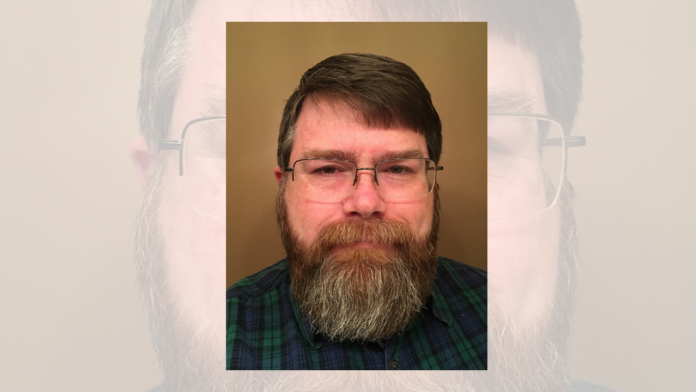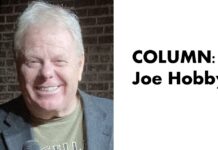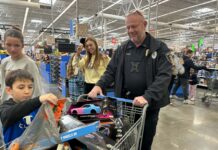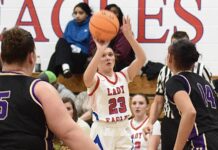The doctors call it “COVID fog,” and it doesn’t get nearly as much attention as respiratory issues and ventilators. It is a very real effect of COVID-19, though, and it can be difficult to define as it strikes different victims in different ways, including striking some not at all.
This is what it meant for me:
I was placed in quarantine during the first week of December after my wife tested positive. On Dec. 15, the day I was to return to my part-time teaching job (I’m a busy guy!) after a 10-day quarantine, I woke up with a fever that would stay with me until the afternoon of Jan. 3. I was tested the next morning, and the results came back positive. While awaiting my results- it wasn’t the rapid test- I lost my sense of smell, and a good bit of my taste went with it, though I never completely lost that sense. By Dec. 17, the fever was rising, and splitting headaches were beginning to occur. From that point until after the New Year, I lived mostly on the couch, in the bedroom or in the bathroom.
My wife is a respiratory therapist (that’s how she was exposed), and the skills and equipment she possesses prevented what would probably have been a trip to the emergency room and hospital Dec. 23-24. My fever peaked early on the 24th, a little shy of the mark my doctor had set for a required ER visit. I was blessed; people I know fared far worse.
During all this time, I began to feel the effects of something I had never heard of in months of watching and reporting on the virus: “COVID fog.” I had no energy, but still had trouble sleeping. Getting my sleep a few minutes to around two hours at a time for almost two weeks, I would wake up groggy and disoriented. As the fever began to abate, I made myself get outside to stretch my legs and get a little fresh air; I had to walk with a cane, though, because my balance was off. Outside, I found that when I tried to look at anything at a distance, I became disoriented and dizzy.
I am a longtime performing musician, singing and playing instruments like the piano, guitar, banjo and Appalachian dulcimer. My singing voice was- and still is- rough due to coughing, but I feel that it will come back as the lingering cough finally subsides. More problematic were my attempts to play instruments. Some usually simple chord fingerings and melodic runs on my instruments just didn’t seem to work, even on songs I’ve been playing since college.
By the time I was cleared to return to school on Jan. 6, the visual disorientation had eased up enough for me to drive, but that revealed a whole new set of issues. Driving into Cullman from my home out in the county, I found that I could not remember why I was going to town; fortunately, I noticed my book bag in the car before I turned around to return home. At school, I had to open my class roll charts, because I could not remember the names of some of my students.
Working on Tribune stories from home, I was challenged to type up articles. Spelling and grammar errors were, for a while, more the rule than the exception. Reading text onscreen could aggravate headaches, and I often found myself pausing for no other reason than to pointlessly stare off into space for a little while.
My balance is getting better now, but I still have to be careful about turning around or turning my head too quickly because doing so can make me dizzy. Though I don’t need it constantly like I once did, I still walk with a cane, for extra support when needed. Making myself play a little each day is shaking the musical cobwebs loose, but I’m still working on the finer points and waiting on the voice to come back.
This is not just another flu. I’ve had the flu; this isn’t it.
One of the frustrating things about COVID-19 is the varied way in which it impacts its victims. Almost every victim I know, including myself, has dealt with the lingering dry cough, but beyond that the rulebook goes out the window. My sense of smell returned on Christmas Day, nine days after it left; some people in my circle who were already COVID-free before I got sick, still have not gotten theirs back yet. People older than I, or with more serious long-term health issues, got over the illness fairly rapidly with a minimum of fog; I’m still playing catch-up almost two weeks later. The doctors have said that there is no particular timetable for recovery. Their estimate to me: “several weeks to several months.”
Do not assume that, because you know people who have had an easy time with COVID, that you will. Do not assume that your membership in a low-risk group means that you are not in danger. Do not assume that a lack of symptoms means you are free to behave recklessly around others.
Seek and follow the advice of your physician. If you think the advice is not sound, seek a second opinion, but please don’t assume that good medical opinions will be accompanied by comment threads.
May wisdom guide you to protect yourself, and may conscience guide you to protect those around you.
Copyright 2021 Humble Roots, LLC. All Rights Reserved.
























